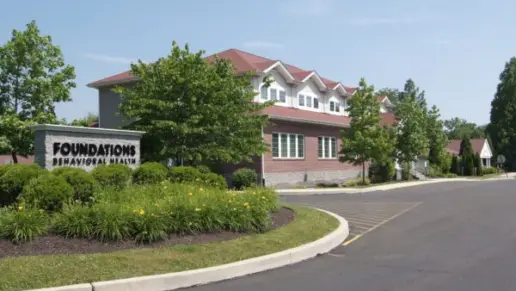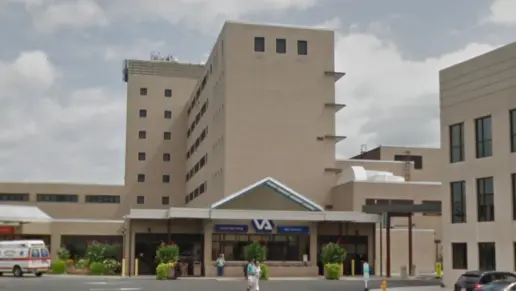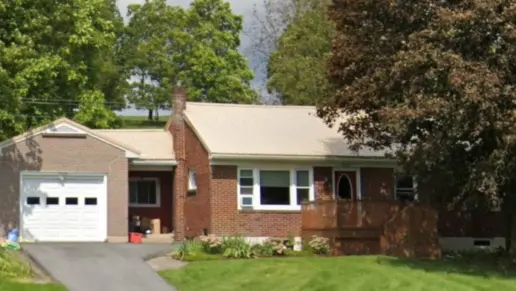About Allied Addiction Recovery, LLC
Allied Addiction Recovery’s Fifth Avenue clinic is an outpatient drug rehab providing addiction treatment services to adults who need outpatient counseling and medication assisted treatment in Pittsburgh, Pennsylvania. Treatment is offered in a safe environment with qualified clinicians through various treatment modalities and FDA-approved medications.
Once you sign up, you’ll enter an outpatient program that can range from a few hours per week or a day treatment each weekday. Each of these outpatient programs offers individual and group counseling at different intensity levels. You’ll undergo substance abuse treatment in a therapeutic environment. Sessions are designed based on an individual’s recovery needs, and each patient is taught how to understand their addiction problems to learn how best to treat them.
The medication assisted treatment program provides individuals with Suboxone or Vivitrol alongside counseling to ensure cravings and withdrawal symptoms are curbed and treated. In addition, those enrolled should expect medication management and group and individual counseling in one location.
They accept all BS and BC insurance plans, including Westmoreland, Fayette, Highmark, Allegheny, and Magellan. However, it’s best to speak with them and your insurer to verify coverage and determine if out-of-network benefits apply.
 Payment Options
Payment Options
Self-pay options
Medicaid
 Levels of Care
Levels of Care
 Outpatient
Outpatient
Outpatient programs are for those seeking mental rehab or drug rehab, but who also stay at home every night. The main difference between outpatient treatment (OP) and intensive outpatient treatment (IOP) lies in the amount of hours the patient spends at the facility. Most of the time an outpatient program is designed for someone who has completed an inpatient stay and is looking to continue their growth in recovery. Outpatient is not meant to be the starting point, it is commonly referred to as aftercare. As a general rule, outpatient therapy begins at once or twice a week.
 Sober Living Homes
Sober Living Homes
Residents of a sober living home in Pennsylvania pay rent and contribute to household maintenance. For their contributions, individuals get the opportunity to live in a substance-free environment and receive support from others in recovery while all residents practice sober-living skills. Sober living expenses are not covered by insurance since they are not treatment services. However, grants and scholarships are often available to help individuals afford rent for men's or women's sober living.
 Medically Assisted Detox
Medically Assisted Detox
A medical detox is the safest way to wean your body off drugs and/or alcohol in an inpatient setting. When detoxing from addictive substances, the physical and psychological side effects of withdrawal can cause mood swings, anxiety, nausea, or flu-like symptoms. In medically assisted detox, a team of medical professionals are on hand 24/7 to help alleviate potential withdrawal symptoms, administer medications to alleviate withdrawal symptoms, and ultimately keep you safe and comfortable throughout this process.
 Programs
Programs
 Adult program
Adult program
 Program for men
Program for men
 Program for women
Program for women
 Young adult program
Young adult program
 Settings & Amenities
Settings & Amenities
-
Metropolitan area
 Insurance
Insurance
Our Policy: Allied Addiction Recovery, LLC works with several private insurance providers and also accepts private payments when possible, please contact us to verify your specific insurance provider.
 Treatment
Treatment
 Alcoholism
Alcoholism
The goal of treatment for alcoholism is abstinence. Those with poor social support, poor motivation, or psychiatric disorders tend to relapse within a few years of treatment. For these people, success is measured by longer periods of abstinence, reduced use of alcohol, better health, and improved social functioning. Recovery and Maintenance are usually based on 12 step programs and AA meetings.
 Drug Addiction
Drug Addiction
Drug rehab in Pennsylvania is devoted to the treatment of addiction. Levels of care, treatment methods, and settings differ, but the aim of each program is to end drug dependency and empower participants to achieve long-term recovery.
 Mental Health and Substance Abuse
Mental Health and Substance Abuse
A combined mental health and substance abuse rehab has the staff and resources available to handle individuals with both mental health and substance abuse issues. It can be challenging to determine where a specific symptom stems from (a mental health issue or an issue related to substance abuse), so mental health and substance abuse professionals are helpful in detangling symptoms and keeping treatment on track.
 Opioid Addiction
Opioid Addiction
Opioid rehabs specialize in supporting those recovering from opioid addiction. They treat those suffering from addiction to illegal opioids like heroin, as well as prescription drugs like oxycodone. These centers typically combine both physical as well as mental and emotional support to help stop addiction. Physical support often includes medical detox and subsequent medical support (including medication), and mental support includes in-depth therapy to address the underlying causes of addiction.
 Clinical Services
Clinical Services
 Group Therapy
Group Therapy
Group therapy is any therapeutic work that happens in a group (not one-on-one). In traditional group therapy clients are guided, supported and directed by the therapists as they develop personal strategies and plans the course and expectations of treatment goals. The group therapy is also designed to help patients build commitment throughout behavior and attitude modification.
 Individual Therapy
Individual Therapy
In individual therapy, a patient meets one-on-one with a trained psychologist or counselor. Therapy is a pivotal part of effective substance abuse treatment, as it often covers root causes of addiction, including challenges faced by the patient in their social, family, and work/school life.
 Accreditations
Accreditations

SAMHSA
The Substance Abuse and Mental Health Services Administration (SAMHSA) is a branch of the U.S. Department of Health and Human Services. Established in 1992 by congress, SAMHSA's mission is to reduce the impact of substance abuse and mental illness on American's communities.
SAMHSA Listed: Yes







